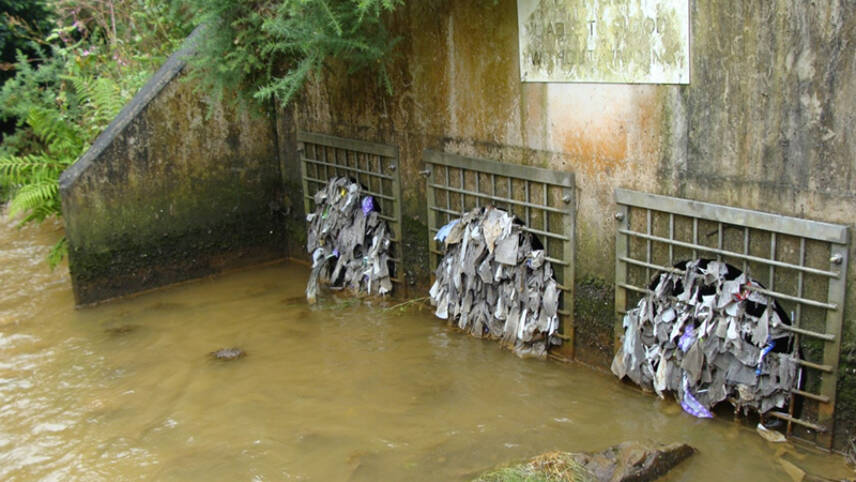Register for free and continue reading
Join our growing army of changemakers and get unlimited access to our premium content

Image: Surfers Against Sewage
The Department for Environment, Food and Rural Affairs (Defra) announced last Friday (26 August) what it claimed to be the “toughest ever” requirements for water companies to restrict and eventually end the practice of discharging untreated water.
Storm overflows have featured prominently in the headlines since restrictions were loosened following a vote in Parliament last year. Environment Agency data for 2021 states that untreated sewage was discharged into coastal bathing waters across England for a total of 160,000 hours, in 25,000 separate discharge incidents.
Under Defra’s new Plan, water companies will need to collectively invest £56bn in monitoring, infrastructure, process changes and skills needed to reduce sewage pollution through to 2050. MPs on the Environmental Audit Committee (EAC) have stated this is significant, as it will require the sector to double the average annual level of investment it has made since 1989. This is when the water sector was privatised.
The Plan would require water companies to significantly reduce – and improve the quality of – all storm overflows discharging into or near designated bathing water by 2035. Companies would also need to improve three-quarters of the overflows discharging into nature sites classed as high-priority by 2035. Companies would then need to address all other overflows by 2050 regardless of location.
WildFish is arguing that, before last year’s vote, most storm overflows were illegal – making the new targets less ambitious than before. It will argue that the relaxing of these targets will “encourage” water companies to make discharges regardless of whether cause adverse ecological impact, breaching existing environmental pledges that are legally binding, for more than a decade.
The charity announced this week that it has issued a letter before action, the first step in a potential judicial review. The letter urges Defra to withdraw the plan and states that court action will be considered if the withdrawal does not happen.
“The Plan is a classic ‘smoke and mirrors’ exercise by a Government that has no real appetite to deal robustly with the appalling sewage pollution of English rivers caused by water companies,” said WildFish’s chief executive Nick Measham.
“WildFish’s’ lawyers have concluded that Defra’s much vaunted Plan, issued last Friday, is unlawful on many counts… We will see in due course how Defra responds.”
Defra has stuck to its original statement, that the current Conservative Party administration is “the first Government to set an expectation on water companies to significantly reduce sewage discharges from storm overflows”. The Department has also stated that the Plan is right to address overflows that are causing the most harm first.
At this stage, it seems unlikely that the Plan will be withdrawn voluntarily.
Water efficiency labelling
In related news, Defra has this week launched a new consultation on plans for mandatory water efficiency labels. The mandate would be applied to manufacturers of appliances for domestic use, such as washing machines, dishwashers, toilets and non-electric showers. Manufacturers would also be encouraged to improve product efficiency over time.
Defra has stated that it believes the mandate would help customers to save at least £125m on water and £147m on energy within a decade of implementation. Given that these forecasts are based on 2019 figures, and bills are currently far higher, the savings stand to be greater. In terms of water savings, the Department forecasts the saving of 1,200 million litres per day.
“Water is a precious resource,” said Water Minister Steve Double. “We want to support consumers so they can make savings without having to make significant changes to their daily lives. “
Industry experts have stated their broad support for the proposals, particularly in light of this summer’s droughts. By the end of August, 10 regions in England and five in Wales had declared drought. Scotland also declared a rare ‘red’ warning for water.
Ofwat boss David Black said: “Managing water demand plays a role in tackling the pressures on our water system, alongside pushing water companies to reduce leakage and looking at new sources and water transfers to increase our future water supply. We support the proposals and look forward to seeing the outcome of this consultation.”


Please login or Register to leave a comment.